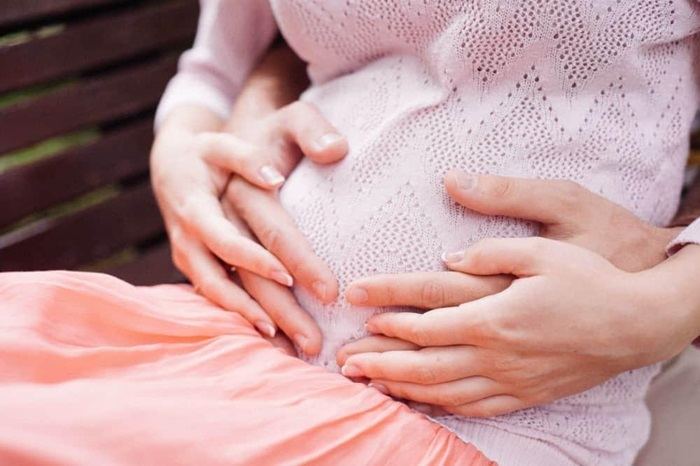Cramps during early pregnancy can be a common experience for many women. While they often cause concern, these cramps are usually benign and part of the normal changes your body undergoes. However, it’s crucial to understand the possible causes and when to seek medical advice.
Normal Causes of Early Pregnancy Cramps
Implantation Cramps
When a fertilized egg attaches to the lining of the uterus, it can cause mild cramping. This typically occurs around six to twelve days after conception and is often one of the earliest signs of pregnancy.
Uterine Expansion
As the uterus begins to expand to accommodate the growing fetus, it can cause cramping. This is a natural part of pregnancy, especially during the first trimester when the most rapid changes occur.
Hormonal Changes
Pregnancy hormones, particularly progesterone, play a significant role in relaxing the muscles of the uterus. This relaxation can sometimes lead to cramping or a pulling sensation in the lower abdomen.
Other Benign Causes
Gas and Bloating
Increased levels of progesterone can slow down the digestive system, leading to gas and bloating. These gastrointestinal issues can cause cramping similar to menstrual cramps.
Round Ligament Pain
The round ligaments support the uterus. As the uterus grows, these ligaments stretch, which can cause sharp pains or cramping, typically felt on one or both sides of the abdomen.
Physical Activity
Sometimes, physical activity or sudden movements can trigger cramping. It’s important to listen to your body and not overexert yourself, especially in the early stages of pregnancy.
When Cramps May Indicate a Problem
Ectopic Pregnancy
An ectopic pregnancy occurs when a fertilized egg implants outside the uterus, most commonly in a fallopian tube. This can cause severe cramping on one side of the abdomen, often accompanied by bleeding. An ectopic pregnancy is a medical emergency and requires immediate attention.
Miscarriage
Cramps accompanied by heavy bleeding, clots, or tissue passing from the vagina can be a sign of miscarriage. While some bleeding and cramping can be normal, it’s important to contact a healthcare provider if these symptoms are severe.
Urinary Tract Infections (UTIs)
UTIs are common during pregnancy and can cause cramping, particularly in the lower abdomen. Other symptoms include a burning sensation when urinating, frequent urination, and cloudy urine. UTIs require medical treatment to prevent complications.
Preterm Labor
Though rare in the first trimester, preterm labor can cause cramping and contractions. Other signs include a change in vaginal discharge, pelvic pressure, and backache. Immediate medical attention is necessary if preterm labor is suspected.
SEE ALSO: What Are the Side Effects of Early Pregnancy?
Managing Early Pregnancy Cramps
Rest and Relaxation
One of the best ways to manage cramps is to rest and relax. Try to avoid strenuous activities and give your body time to adjust to the changes.
Hydration
Staying well-hydrated can help reduce cramping. Dehydration can sometimes cause uterine contractions, so drinking plenty of water is essential.
Warm Compress
A warm compress or heating pad applied to the lower abdomen can help alleviate cramping. Ensure the heat is not too intense and avoid using it for prolonged periods.
Gentle Exercise
Light exercise, such as walking or prenatal yoga, can help reduce cramping. Exercise improves blood flow and can ease digestive issues like gas and bloating.
Proper Posture
Maintaining good posture can prevent unnecessary strain on the back and abdomen, reducing the likelihood of cramping. Use supportive pillows when sitting and sleeping to maintain alignment.
When to Contact a Healthcare Provider
Persistent or Severe Pain
If cramping is severe, persistent, or accompanied by other concerning symptoms like heavy bleeding, dizziness, or fever, it’s important to contact your healthcare provider immediately.
Regular Monitoring
Regular prenatal check-ups are essential to monitor the health of both mother and baby. During these visits, any concerns about cramping can be discussed and addressed.
Emotional and Psychological Support
Understanding Anxiety
Experiencing cramping during early pregnancy can be anxiety-inducing. It’s important to acknowledge these feelings and seek support from loved ones, healthcare providers, or support groups.
Education and Preparation
Educating yourself about the normal changes during pregnancy can help reduce anxiety. Knowing what to expect can make the experience less frightening and more manageable.
Communication
Open communication with your healthcare provider is key. They can provide reassurance, answer questions, and offer advice on managing symptoms and maintaining a healthy pregnancy.
Conclusion
Early pregnancy cramps are usually a normal part of the body’s adjustment to pregnancy. While they can be uncomfortable and sometimes alarming, understanding the common causes and knowing when to seek medical advice can help manage concerns. Always prioritize your health and well-being, and don’t hesitate to reach out to your healthcare provider with any questions or concerns.


